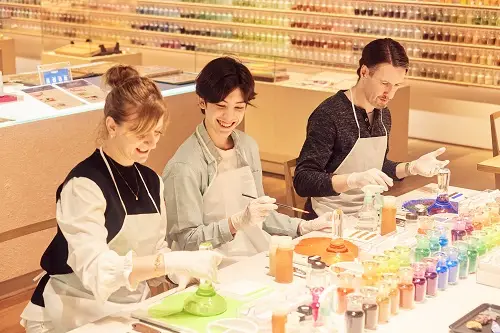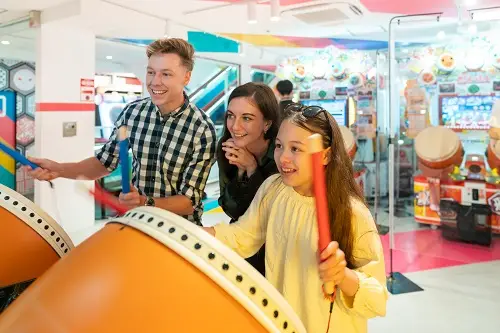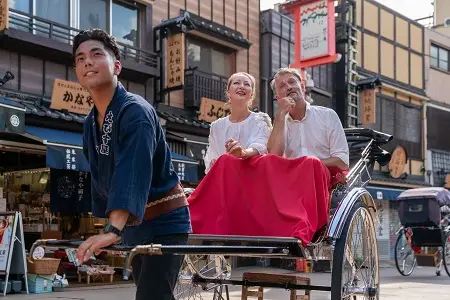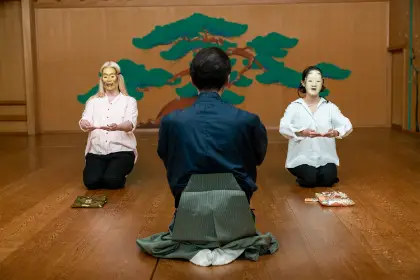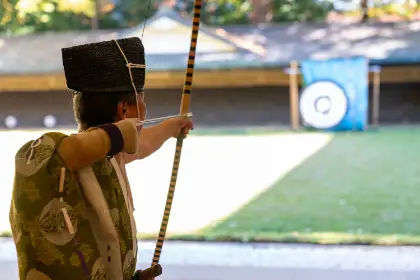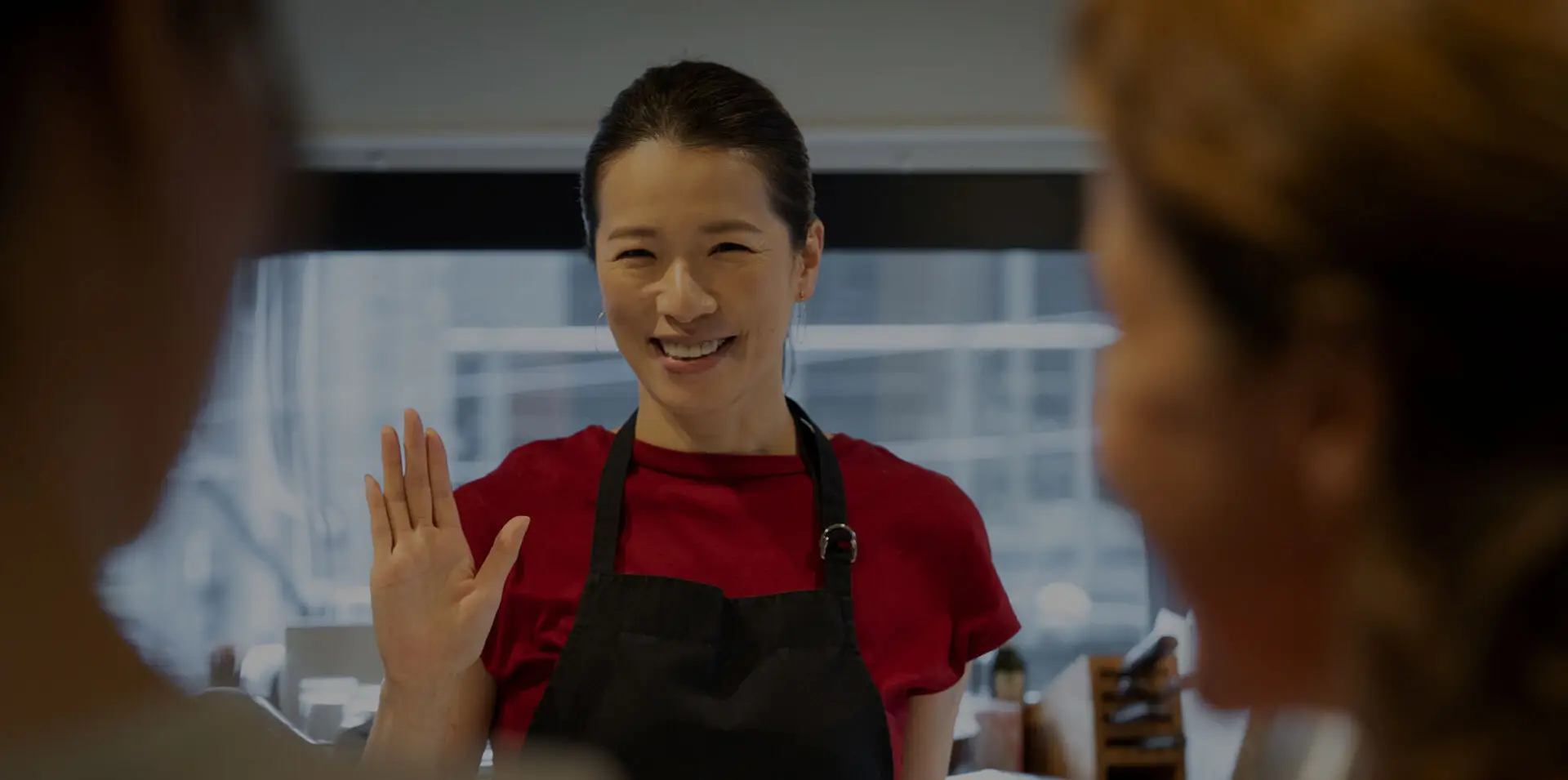
JAPANESE HOME COOKING MADE EASY
It's perhaps the ultimate souvenir from a trip to Tokyo: the ability to cook Japanese food. TOKYO COOK excels at teaching the art of Japanese home cooking, from gyoza dumplings to dashi broth, with experiences that are fun, tasty - and surprisingly easy.
Sublimely crafted, sensitively seasonal and aesthetically pleasing. These are among countless words often used to describe the timeless appeal of Japanese cuisine. But one word that is not often heard? Easy.
TOKYO COOK, a discreet establishment in the Roppongi district of the capital, is intent on changing this, with high quality cookery classes focused on making the art of Japanese home cooking as accessible as it's tasty.
There are few more ideal places to dive deep into the world of Japanese cuisine than Tokyo, a long famed hotbed of culinary excellence and innovation. Tokyo is undoubtedly the perfect location to obtain a widespread overview of Japan's richly varied and nuanced regional cuisine - and TOKYO COOK excels at precisely this, expertly providing a nationwide perspective.
From sushi, chicken and egg bowl oyakodon or gyoza dumplings to tonkatsu pork, bento boxes or teriyaki dishes (among many others), the classes offer step-by-step insights into the processes behind Japan's most classic dishes from across the country.
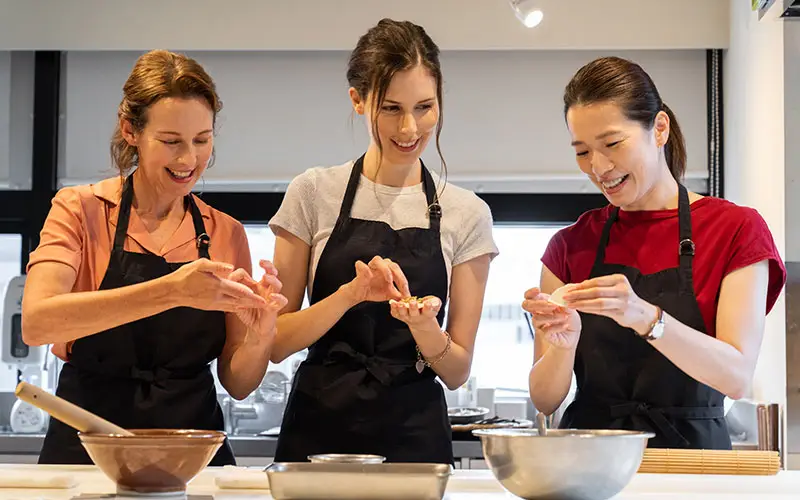
Key to the experience is a balance of simplicity and professionalism: instructors are deeply skilled at adapting complex dishes, so they are easy for overseas visitors to understand and replicate at home.
At the same time, TOKYO COOK also offers professional classes to leading global chefs - providing unique expertise and insights which are resolutely five star. Its classes have been attended by numerous global chefs (including two from famous restaurants featuring in the top 20 of the world's best restaurant rankings); Royal family members from Europe; chefs cooking for celebrities on board private yachts; and many other VIPs from across the globe.
The professional classes are led by a glittering array of chefs: ranging from Daisuke Nomura, an internationally celebrated chef famed for his modern mastery of centuries-old Buddhist vegetarian cuisine (his restaurant Shojin Sougo is on the same site as TOKYO COOK); to Shinichi Yoshida, former head chef at one of Tokyo's most famous (and fashionable) soba restaurants, who specializes in the art of delicious hand-made soba buckwheat noodles.
TOKYO COOK's home cooking classes are no less impressive. The instructors lead intimate classes of up to six people in a contemporary kitchen space, before guests sit at the table and eat their creations. The specialist knowledge of instructors is directly matched to the clientele, to create a bespoke culinary experience.
One key figure is the in-house cooking instructor Yoko Goto, as friendly as she is experienced, having studied the art of washoku (traditional Japanese cuisine) at a famed school in addition to qualifying as a wine sommelier and an expert in Japanese fresh food markets and seasonal produce.
“All the dishes can be cooked in simple and easy steps, even for beginners,” she smiles. “Many people think Japanese cooking is difficult as we use unique seasonings and a broth called dashi. But I like participants to know that Japanese cooking is simple, delicious and not difficult to make.”

During one recent class focusing on gyoza dumplings, Goto began by introducing one of the most foundational elements of Japanese cooking: dashi broth, typically made from kombu kelp or bonito fish flakes.
“In Japanese cuisine, a basic broth called dashi is very important,” she explains. “Once you can make good dashi, you don't have to add much seasoning and you can make so many delicious dishes.”
The dashi tip is one simple gem among countless others offered throughout the experience, which was peppered with insights relating to seasoning and Japanese cuisine's cultural background.
Not to forget hands-on cooking. Firstly, the gyoza filling is prepared - a mix of minced pork, Chinese chives and cabbages. Goto then skillfully teaches the art of wrapping the filling in thin circular sheets of pastry - before rich scents fill the space as they pan-fry them. Next up, it's time to ground sesame with a pestle and mortar, before a delicious sesame paste is placed on boiled spinach.
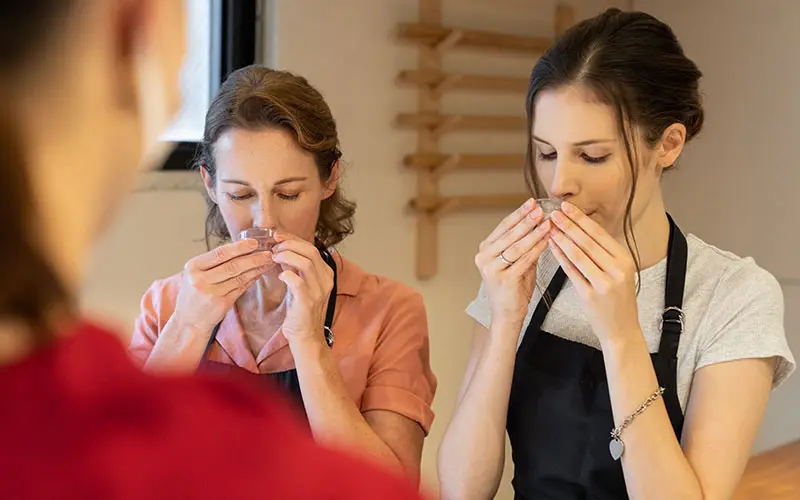
Mission accomplished, guests sit down and the meal is served: gyoza, sesame spinach plus white rice, miso soup and - a treat from the chef - a delicious finale of matcha green tea mousse.
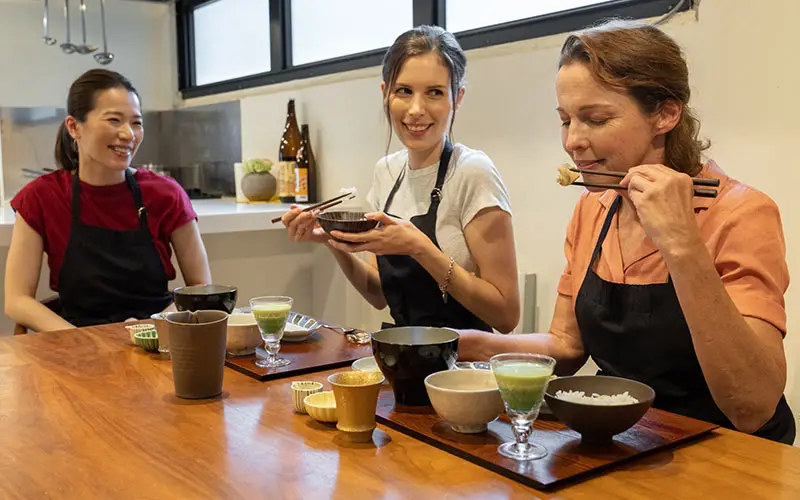 Something of a rarity in Japan's traditional culinary world, the experience is both flexible and global in perspective, offering a bespoke experience that ties in perfectly with Tokyo's status as a global food innovator. In addition to providing a nationwide overview of Japanese cuisine, instructors can also easily adjust recipes and suggest ingredient substitutes for shopping overseas.
Something of a rarity in Japan's traditional culinary world, the experience is both flexible and global in perspective, offering a bespoke experience that ties in perfectly with Tokyo's status as a global food innovator. In addition to providing a nationwide overview of Japanese cuisine, instructors can also easily adjust recipes and suggest ingredient substitutes for shopping overseas.
“TOKYO COOK can accommodate food restrictions, from vegetarian food to gluten free,” says Goto. “We can basically teach whatever participants request.”
She adds: “It's all very relaxed, friendly and easy. It's about helping people enjoy Japan's food culture.



